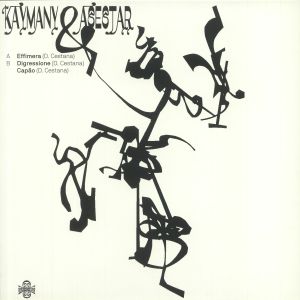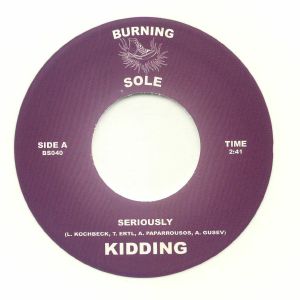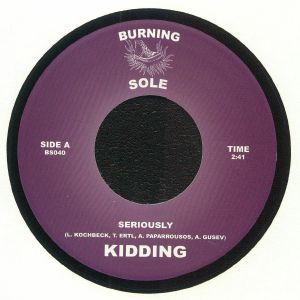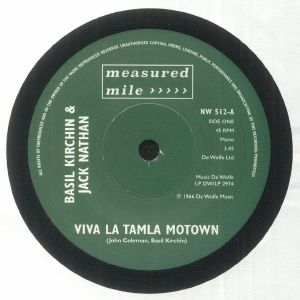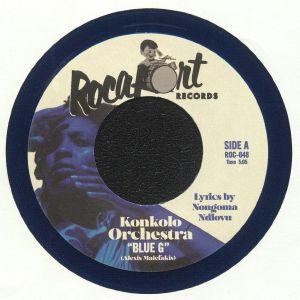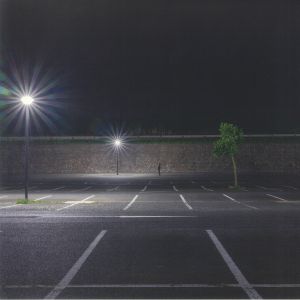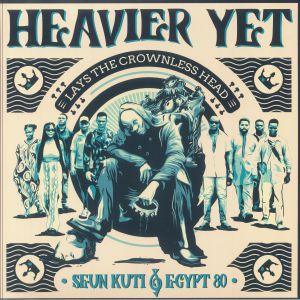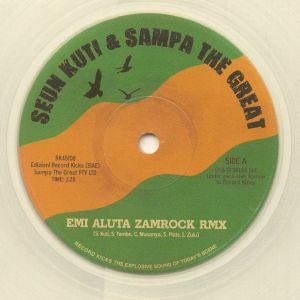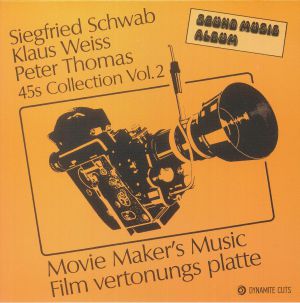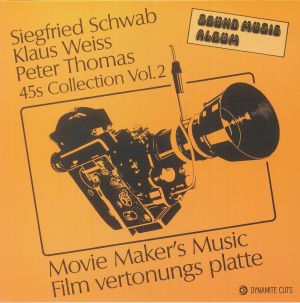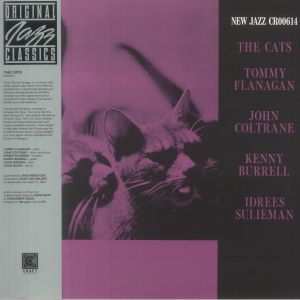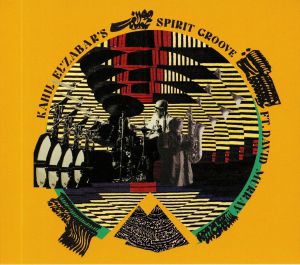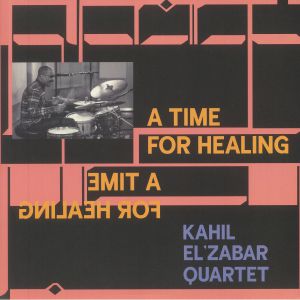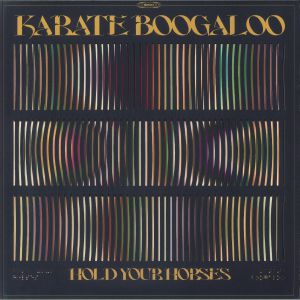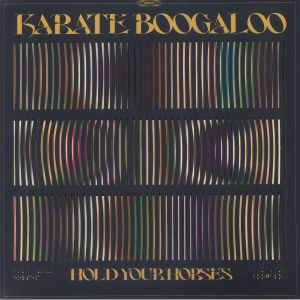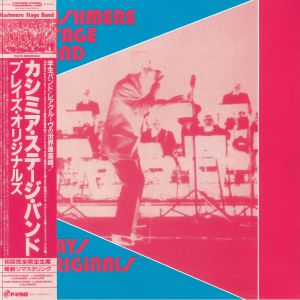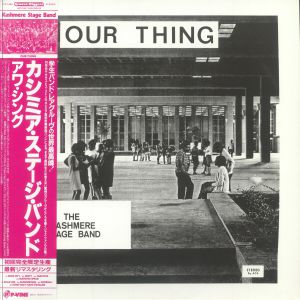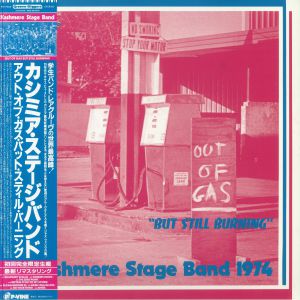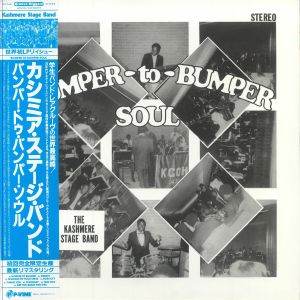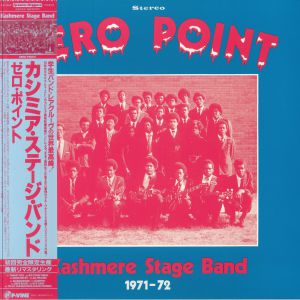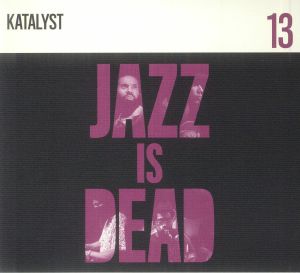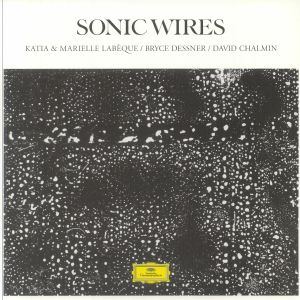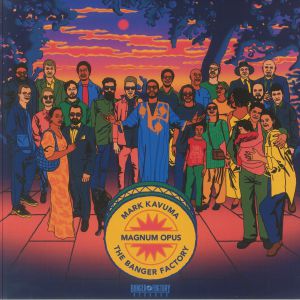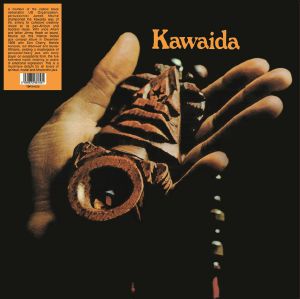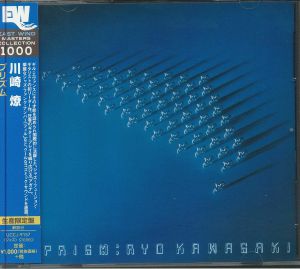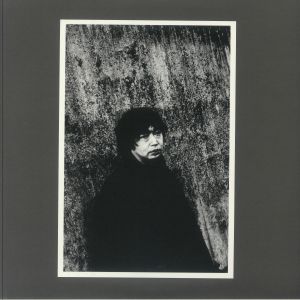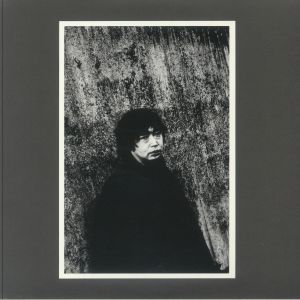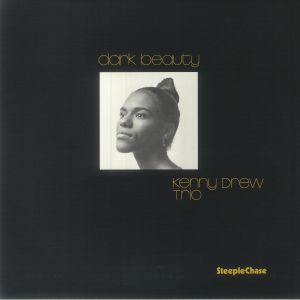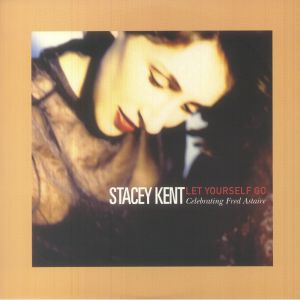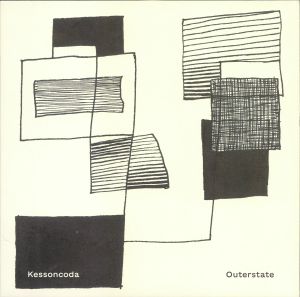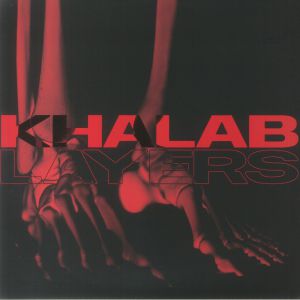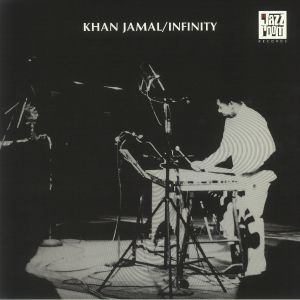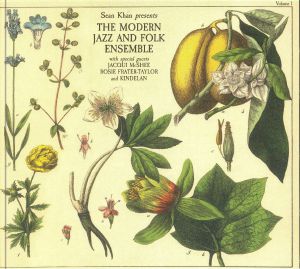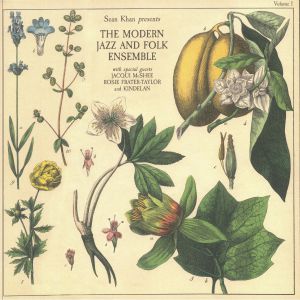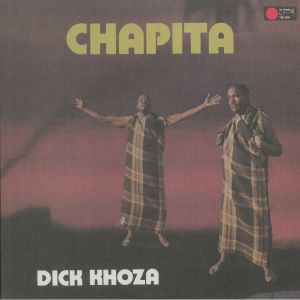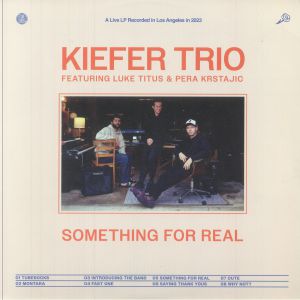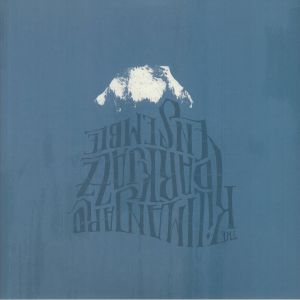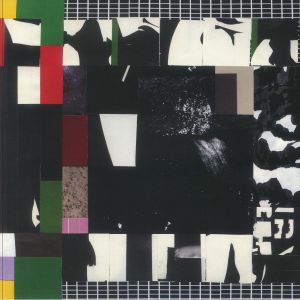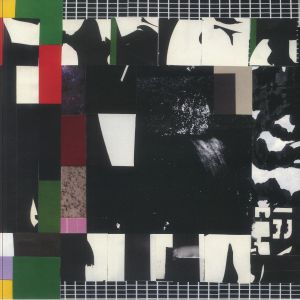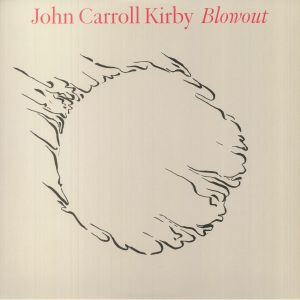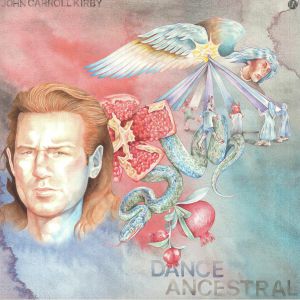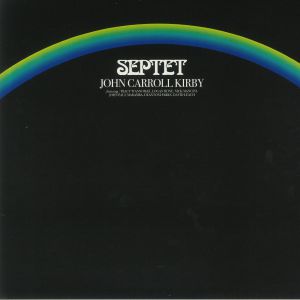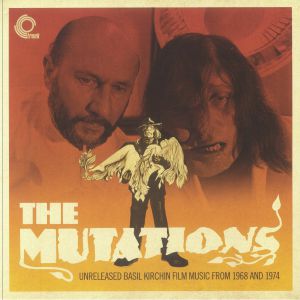Filter
Genre
在庫状況
アーティスト
Featured
リリースタイトル
値段
タグ
Back catalogue: Funk Soul & Jazz
Juno's full catalogue of Funk Soul & Jazz
シングル
Review: Kaymany & Asestar hail from Rome, a city where many musicians spend most of their days producing sounds for the television industry and even shopping malls. That's part of the reason the country has such a reparation for great jazz-funk sounds and now adding to that cannon are Kaymany & Asestar. 'Effimera' is glossy and feel good disco with retro future chords, while 'Digressione' has a Bob James style energy to it with its high speed funky bass and incidental chords. 'Capao' closes in Latin fashion with manic keys and more plucked and funky bass slaps making you shake every limb.
… Read morePlayed by: I Love Disco!
in stock $10.97
Seriously (white vinyl 7" limited to 100 copies)
Cat: BS 040W. Rel: 21 Mar 24
Review: Available in extremely limited quantities, this new 7" from Burning Soul arrives in both black, or as we have it here, white, and it's another gem from Kidding that keeps up this fine Swiss label's high-quality output. The A-side bursts to life with 'Seriously,' a blistering funk anthem infused with Hammond-organ melodies, underpinned by a deep bass groove and gritty guitar licks. Flipping over to the B-side, 'Komet Ride' kicks up the tempo with even more vigorous drumming and exhilarating organ solos. It's a whirlwind of funk brilliance, underscoring Kidding's knack for delivering electrifying musical adventures.
… Read more in stock $15.10
Review: It's always a good day when a new Burning Soul 7" drops in our laps and this new one is another standout that comes in very limited quantities on either black or white vinyl. It's the great work of Kidding and opens with 'Seriously' which is a Hammond-organ laced and flame hot funk workout with low-slung bass and lots of great grit riffs. The flipside picks up the pace with 'Komet Ride' which has even more energetic drums and even more mad finger action on the organ. Frenetic funk of the highest order.
… Read more in stock $15.10
Viva La Tamla Motown (7")
Cat: NW 512. Rel: 23 Feb 23
Review: KPM Music might just be one of the most expansive music libraries out there, boasting a whopping 30,000 exclusive music tracks for licensing. Some of their earliest pieces are being reissued by Measured Mile, the latest of which appears here in the form of a split 7" by four of the label's most treasured contributors. 'Viva La Tamla Motown' helms up the A-side with wonky, laboured drumming and an excitable rock n' rolly guitar and harmonica. 'Main Chance' brings up the B with a more loungeified flutey strutter.
… Read morePlayed by: Mukatsuku Records Chart, Juno Recommends Leftfield
in stock $11.53
Review: Spanish reissue label Rocafort present this wonderful slice of highlife from Konkolo Orchestra, this time on nice blue wax as well as a plain black version. It's not exactly clear where, or indeed when, exactly the band came from, but their sound is all you need to worry about. 'Blue G' is a lilting, shuffling message of love and support for future generations, and from the message to the effervescent musicality, it's a no-brainer. On the flip, 'That Good Thing' is an instrumental that spirals outwards on the sweetest keys, joyous brass and dreamy guitar, driven by a pattering drum section to radiate good vibes wherever it's played.
… Read more in stock $10.97
Review: Wonky meets jazz in this impressive new jazz mini-LP from Japan. Takuya Kuroda is a highly respected trumpeter and arranger born in Kobe, Japan and based in New York City. 'Midnight Crisp' is Takuya's seventh studio album, entirely self-produced and following 2020's highly acclaimed 'Fly Moon Die Soon'. Learning jazz in a higher education environment, he's reapplied his skills to a new solo outing here, blending with his one true loves, afrobeat and hip-hop. The ensuing album is one of myriad midnight moods, tempered by many a virtuosic and mournful piano, digitally-edited drum brush, and trilling trumpet from the mouth of Kuroda himself.
… Read more in stock $23.61
Cat: RKX 096LP. Rel: 03 Oct 24
Review: Seun Kuti has released his highly anticipated album Heavier Yet (Lays The Crownless Head) via Record Kicks to great excitement. This album, executive produced by Lenny Kravitz and featuring Fela Kuti's original engineer Sodi Marciszewer, marks a significant milestone in Kuti's career. Following his Grammy-nominated album Black Times, this release showcases his evolution as both an artist and activist. The album features six powerful tracks, each embodying themes of resistance, resilience, and revolution. The track 'Dey,' featuring Damian Marley, emphasises self-empowerment, while 'Emi Aluta' pays homage to revolutionaries, featuring the innovative Sampa The Great. 'T.O.P.' critiques societal values, promoting empathy and a connection to nature. 'Love and Revolution' highlights Kuti's belief in love as a catalyst for change. Kuti expressed gratitude for Kravitz's brotherly support and Sodi's guidance during the production process. He continues to uphold the legacy of his father, Fela Kuti, using his music to inspire social change. This album promises to redefine contemporary Afrobeat while staying true to its roots. Fans can expect an album that entertains, inspires and ignites activism.
… Read morePlayed by: AfroBase (Radio Chart), Juno Recommends International
in stock $29.63
Emi Aluta (limited clear vinyl 7")
Cat: RK 45108C1. Rel: 13 Feb 25
Review: Afrobeat virtuoso Seun Kuti is soon to release his highly anticipated album, Heavier Yet (Lays The Crownless Head) later this year. It features guest appearances from Damian Marley and Sampa The Great so promises to be a global sensation. Ahead of that, we get a taste of things to come from his distinctive Afrobeat sound with this powerful new work on Milan's Record Kicks. First up here with get the bubbly rhythms of 'Emi Aluta' (Zamrock remix) then 'Emi Aluta' (feat Sampa The Great - 45 edit) comes complete with some hard bars.
… Read morePlayed by: Juno Recommends International
in stock $14.01
Sound Music 45s Collection Vol 2 (hand-numbered orange vinyl 7" limited to 150 copies)
Cat: DYNAM 7130OR. Rel: 04 May 23
Review: Dynamite Cuts brings the heat once more with a second volume of their Sound Music 45s series. Siegfried Schwab takes care of the A-side with 'Getting High', a scorching funk workout with hard-worked guitar chords and precise percussion over lots of wah-wah effects. 'Feel It; flip the script with a superbly stripped-down jazz-funk lounge sound. Klaus Weiss then steps up on 'Time For Rhythm' with some loose, percussive funk beats that are raw and organic, then Peter Thomas closes down with 'Documentation', a more richly instrumental and multi-layered jazz-funk sound that conveys real grandeur.
… Read more in stock $18.39
Sound Music 45s Collection Vol 2 (limited 7")
Cat: DYNAM 7130. Rel: 04 May 23
Review: Dynamite Cuts brings the heat once more with a second volume of their Sound Music 45s series. Siegfried Schwab takes care of the A-side with 'Getting High', a scorching funk workout with hard-worked guitar chords and precise percussion over lots of wah-wah effects. 'Feel It; flip the script with a superbly stripped-down jazz-funk lounge sound. Klaus Weiss then steps up on 'Time For Rhythm' with some loose, percussive funk beats that are raw and organic, then Peter Thomas closes down with 'Documentation', a more richly instrumental and multi-layered jazz-funk sound that conveys real grandeur.
… Read more in stock $17.02
アルバム
Ritual (Expanded Edition) (limited gatefold 2xLP)
Cat: SRE 604LP. Rel: 06 Apr 23
Review: Nature documentary series The Living Planet very much captured the imagination of Raoul Bjorkenheim back in 1986. It featured erupting volcanoes and plumes of molten lava and some of that drama and energy is captured in this fine jazz album which now gets a new extended reissue. Bjorkenheim studied at the Helsinki Conservatory for a year and the Berklee College of Music in Boston for three years and worked with composer and drummer Edward 'Eetu' Vesala. For this album, he played with reed virtuosos Jorma Tapio and Tapani Rinne, bassist Sampo Lassila and drummers Michel Lambert and Heikki 'Lefty' Lehto. It is a hot and raw record that contains an album's worth of previously unheard material.
… Read more in stock $23.89
The Cats (LP with obi-strip)
Cat: CR 00614. Rel: 07 Dec 23
Review: Jazz collectors - specifically those of you with an obsession with the work of sax legend John Coltrane - perk up your ears. Many among you might not yet be aware of The Cats, a collaborative album recorded in synergy between Coltrane, guitarist Kenny Burrell, trumpeter Idrees Sulieman, and pianist Tommy Flanagan, but we wouldn't blame you, because this was one that flew under the radar on its New Jazz release in 1959. Not least, this might have been because it was released when Coltrane had moved onto more one-off release projects, shortly after his more widely publicized contract with Prestige Records ended. Nonetheless, it's cited as a deeply special album, resonant of the slinky sound of postwar New York jazz inasmuch as it is of the archetypal feline form.
… Read more in stock $47.21
Breaking The Shell (limited 180 gram clear vinyl LP + insert)
Cat: RHLP 1006. Rel: 26 Sep 24
Review: Breaking the Shell is an innovative new release from a top trio formed of drummer Andrew Cyrille, guitarist Bill Frisell, and pipe organist Kit Downes. Their much anticipated album features a rare and captivating blend of instruments including things such as electric guitar, pipe organ, and drums and therefore offers a fresh sound across 11 new cuts. The collaboration creates a meditative exploration of sound along the way and that allows these three visionary musicians to explore new dimensions of creativity and expression at every turn.
… Read more in stock $24.43
Pointed Frequencies (LP + insert)
Cat: DIALLP 48. Rel: 14 Nov 24
Review: Ben Kaczor and Niculin Barandun's debut album, Pointed Frequencies come on the tasteful German outlet Dial Records and explores the healing potential of sound through six immersive tracks. Their collaboration began in 2022 for an audiovisual show at Digital Art Festival Zurich and has developed masterfully since and as Kaczor studied sound therapy, Barandun became intrigued by its possibilities, and it is that which has inspired the album's direction. It incorporates therapeutic elements like binaural beats and solfeggio frequencies into a seamless blend of ambient and experimental music. Through free improvisation, the pair have cooked up some brilliantly contemplative pieces here.
… Read morePlayed by: Joachim Spieth
in stock $20.32
Review: Percussionist Kahil El Zabar and tenor saxophonist David Murray have long been keen collaborators. Since laying down their first joint album in 1989, they've collaborated on countless recordings and live performances, each helping them carve a deeper and more distinactive niche within spiritual jazz. Their latest full-length excursion, "Spirit Jazz", may well be their best collective work to date. Joined by bassist Emma Dayhuff and keys-player Justin Dillard, the pair work their way through a septet of fresh compositions that combine the free-wheeling, intergalactic spirit of spiritual jazz with grooves and arrangements that are far more accessible than those offered up by their contemporaries. It's an alluring combination.
… Read morePlayed by: Juno Recommends Jazz
in stock $20.04
A Time For Healing (Deluxe Edition) (limited 180 gram audiophile vinyl 2xLP + insert)
Cat: LPKEZ 007X. Rel: 04 Feb 22
Review: Yet more futurist jazz tones and rhythmic harmonies come straight from the mind of Kahil El'zabar, the musician and bandleader whose avant-garde practise centres on the artist's own black African roots. Channelling every instrument from kalimba to 'spirit bowls', a near-endless line of El'zabar's ancestral spirits are invoked, as dual tributes to spirituality and city life are laid bare actoss a chilled-out but grandiose 9 tracks, from the opening 'A Time For Healing' to the tributary 'Eddie Harris'.
… Read more in stock $47.48
Hold Your Horses (LP + MP3 download code in die-cut sleeve)
Cat: CLMN 12058LP. Rel: 02 May 24
Review: Karate Boogaloo are pioneers of Melbourne's cinematic instrumental soul scene, with roots deeply entrenched in the city's DIY soul movement, the quartet's musical journey from high school pals to seasoned collaborators evident in their cohesive sound. Following their acclaimed release Carn The Boogers, Hold Your Horses offers a distinct blend of instrumental funk that we find irresistible. Recorded live with a strict no overdubs policy, the album captures the band's raw energy and tight-knit chemistry. Each track seamlessly flows into the next, blending tension, melody, and funk. Bassist Henry Jenkins, the mastermind behind the band's sound, leads the recording and mixing process, ensuring a consistent sonic aesthetic across the College Of Knowledge catalogue. The collaborative songwriting approach allows the band to expand upon their strengths as musicians and friends. Stylistically, Hold Your Horses draws inspiration from deep funk, European film music and instrumental soul, showcasing a restrained yet dynamic instrumental palette.
… Read morePlayed by: Juno Recommends Broken Beat Nu Jazz
in stock $36.78
Hold Your Horses (green marbled vinyl LP + MP3 download code in die-cut sleeve (indie exclusive))
Cat: CLMN 12058LPC1. Rel: 02 May 24
Review: Karate Boogaloo's latest album, Hold Your Horses, offers a captivating collection of original instrumental tunes from Melbourne, Australia's vibrant soul scene. The album's lead single 'One Hand One Bounce' sets the tone with its spacious and introspective vibe, all moody dynamics that draw the listener in. Drawing from influences like Booker T & The MG's and The Meters, Karate Boogaloo infuse their music with a blend of cinematic tension, whimsical melodies, and eerie discordance, all underpinned by heavy funk grooves. The band's chemistry, developed over 15+ years of friendship and musical collaboration, shines through each track, creating a cohesive, immersive listening experience. Recorded live with no overdubs, Hold Your Horses captures the raw energy and spontaneity of Karate Boogaloo's performances. The instrumental palete, limited to drums, guitar, bass and organ, establishes a consistent tone while allowing for neat shifts and nuanced execution.
… Read morePlayed by: Juno Recommends Broken Beat Nu Jazz
in stock $38.15
Expo 75 Concert Tour Japan Okinawa (limited LP with obi-strip)
Cat: PLP 7467. Rel: 24 Jan 25
Review: Yet another school band record, turned rare funk and/or "Northern soul" gem, sends the heads haywire. Kashmere Stage Band were the highly obscure and yet low-key rated "elite performing unit" of Kashmere High School, a notable public high school in Houston, Texas. With a rotating lineup that kept the band alive in the pivotal, almost two-decade period of 1960 through to 1978, this colliery crack team was led by the celebrated Conrad O. Johnson, a towering figure in the annals of Southern American music education. A former Count Basie and Erskine Hawkins collaborator, Johnson saw to it that no band member would loosen their grip on the groove; neither adolescence nor pubescence are excuses for relinquishing the rightful vibe of soul and funk, that of serious bombast. The record staggeringly crosses into jazz at points, as with 'Lockwood Drive' (clock the notably sampleable, watertight drum break at the midpoint). And legend has it that the Kashmere band went on to tour the world; the bar really was this yea in the 70s. What did the state of Texas get right back then?
… Read more in stock $37.32
Plays Originals (limited LP with obi-strip)
Cat: PLP 7466. Rel: 24 Jan 25
Review: The legendary Kashmere High School Brass Band from Houston, Texas always deliver an incredible jazz-funk storm and in this rare groove masterpiece, they have rarely sounded better. Known as the world's best student band, their astonishing groove defies what you would think a bunch of high school musicians would be capable of. Originally released in 1974, this sixth album features original compositions by their teacher, Conrad Johnson, and includes all four titles from their catalogue, complete with a fine jacket design and exceptional sound quality. The tunes come thick and fast and include 'Kashmere' with its killer breakbeats, 'Head Wiggle' a fast-paced bass-driven funk, 'Do You Dig It Man?' big band funk at its best and 'Thunder Soul' which is percussive jazz funk brilliance.
… Read more in stock $37.32
Our Thing (LP with obi-strip)
Cat: PLP 7460. Rel: 18 Oct 24
Review: Self-released in 1969, Our Thing was the debut album from the Houston-based Kashmere Stage Band, a now legendary funk, soul and jazz ensemble formed at Kashmere High School under the guidance of musical director Conrad O. Johnson. The student band released several cult albums on Kram Records before disbanding in 1978. They became known for their raw funk sound and a distinctive Blacksploitation vibe and their energy and style were truly unique. This black vinyl LP reissue comes with a Japanese obi-strip and is a great way to celebrate the legacy of a group that left a lasting mark on the funk scene.
… Read more in stock $35.12
Out Of Gas But Still Burning (reissue) (limited LP with obi-strip)
Cat: PLP 7465. Rel: 24 Dec 24
Review: KSB stands for Kashmere Stage Band group that was initially founded by Conrad O. Johnson. He was at the heart of the group which is surely one of the most accomplished student outfits of all time. They hailed from the eponymous Kashmere High School in Houston, Texas, and were active in the 1960s on until the late 1970s. They related a number of albums which only get got pressed up a maximum of 1000 times so have become cult favs and hard to find treasures. P-VINE however changes all that with a series of limited reissues of their most renowned albums, including this one, Out Of Gas But Still Burning, as well as some others which have never actually been on wax before.
… Read more in stock $37.06
Bumper To Bumper Soul (reisue) (limited LP with obi-strip)
Cat: PLP 7461. Rel: 18 Oct 24
Review: Kashmere Stage Band was formed in the 1960s and was made up of students from Kashmere High School and group leader Conrad O. Johnson. Bumper-To-Bumper Soul is their second album, and it was recorded between 1969 and 1970. The record, which like all their others was only pressed in small quantities and sold locally in Houston, Texas, so is hard to find but much in demand, is an extension of the high school group's debut album, but with a high percentage of groovy jazz funk, covering well-known songs in their now fast funk style.
… Read more in stock $35.12
Zero Point (reissue) (limited LP with obi-strip)
Cat: PLP 7463. Rel: 18 Nov 24
Review: High school band Kashmere Stage Band was formed in Texas by students from Kashmere High School's elite music division under the guidance of leader Conrad O. Johnson. They recorded plenty of albums but they only got sold locally and made in small numbers so now P-VIBE is embarking on a much-needed reissue run. Zero Point came in 1972, right in the middle of the band's activities which ran from the early 60s to the late 70s. It's a funky jazz fusion workout with great echoed vocals and fuzz-tone guitar.
… Read more in stock $36.51
Jazz Is Dead 13 (CD)
Cat: JID 013CD. Rel: 15 Jul 22
Review: On the latest instalment in their essential Jazz is Dead series, musical polymaths Adrian Younge and Ali Shaheed Muhammad have joined forces with Katalyst, a Los Angeles-based collective of musicians whose work is inspired by their 1960s Californian predecessors Afrikan People's Arkestra and Union of God Musicians Ascension Association. What's an offer is undeniably impressive and, at genuinely life-affirming, with the assembled cast doing a superb job of joining the dots between spiritual jazz, soul-jazz, horizontal jazz-funk and deeper, more sun-kissed flavours. Highlights are plentiful and include, though are no way limited to, the breezy 'Juneteenth', the languid dancefloor shuffle and sustained electric piano motifs of 'The Avenues' and the morning-fresh wonder that is 'Daybreak'.
… Read more in stock $13.16
Sonic Wires (gatefold 2xLP)
Cat: 487696 9. Rel: 21 Nov 24
Review: Formed in 2018, Dream House Quartet has been reshaping the boundaries between classical and contemporary music. The group consists of pianists Katia and Marielle Labeque, both renowned for their versatility across genres, along with Grammy-winning guitarist Bryce Dessner of The National and composer-producer David Chalmin on guitar. Their repertoire spans radical commissions and essential works from the past 50 years. After releasing their self-titled digital EP in 2023, the quartet now unveils their latest project, Sonic Wires, coinciding with a November 2024 tour. The album features pieces by Steve Reich, Philip Glass, Bryce Dessner, Sufjan Stevens and Anna Thorvaldsdottir.
… Read more in stock $38.97
Magnum Opus (gatefold 2xLP)
Cat: BF 007LP. Rel: 05 Dec 24
Review: Led by visionary trumpet player Mark Kavuma, this album shows the immense talent of London's jazz scene, blending seasoned musicians with the new generation. Kavuma's ensemble, The Banger Factory, has grown from a quintet to a 20-plus collective, championing diversity and nurturing young talent. The album features original compositions from Kavuma and his bandmates, alongside well-chosen covers, all imbued with a contemporary jazz spirit wrapped in vintage influences. The arrangements are rich and varied, with tracks that evoke hard bop, soul and more modern styles. Highlights include Musshinghi Brian Edwards' hard-driving 'Wayward Return', which features impeccable solos from trumpet, alto sax and piano and the smooth vocal tracks 'Fools Rush In' and 'Evenin'', both brimming with vintage charm. Standout performances from saxophonists Ruben Fox and Theo Erskine, guitarist Artie Zaitz and vocalist Sahra Gure bring depth and dynamism. The album's diverse lineup shines throughout, with each musician given space to contribute their unique voice. The rhythm section, in particular, deserves special mention for its inventiveness and tightness. Kavuma's meticulous arrangements ensure that every track feels cohesive and engaging, making this a captivating celebration of both jazz tradition and innovation.
… Read more in stock $42.00
Review: Percussionist James Mtume, also a member of the radical black nationalist US Organisation, was a known proponent of the Kawaida philosophy, which promoted collective creativity rooted in pan-African and socialist principles. In December 1969, with his uncle Albert and father Jimmy Heath involved, Mtume recorded this powerful narrative modal jazz opera, with Don Cherry, Herbie Hancock, Ed Blackwell, and Buster Williams kept in sessional tow. An intense, rhythmanalytic masterpiece, every musician is given their own time in the auditory spotlight here, helping broach a fresh, mulitplicitous sound for the late 60s. 'Kamili' and 'Maulaina' are special pieces, intoxicating the ears with the scented feel of emotional gasoline: modal and Afrocentric jazz globes collide on this dustily remastered record, bringing seismic, voggy eruptions of spirit.
… Read more in stock $21.41
Review: In the late 1970s Japanese jazz guitarist Ryo Kawasaki recorded a string of great albums - many of which were originally only released in his home country - before embracing the potential of drum machines and synthesisers in the early 1980s. Amongst his most potent sets of the 70s was Prism, an inventive and wildly freewheeling fusion and jazz-funk excursion. As this reissue proves, it remains a genuine gem, with Kawasaki showcasing his incredible versatility across a range of tracks that variously doff a cap to slow-motion blues ('Bridge Sun'), Blaxploitation soundtrack funk ('Nogi'), high-tempo free-jazz ('Agana'), synth-laden jazz-funk ('Phil'), laidback fusion jams ('Sweet Tears'), and solo experiments ('Bridge Star').
… Read more in stock $9.87
Review: Over the past decade, saxophonist Makoto Kawashima has established himself as an improvisational great. Zoe, his first studio album and second with Black Editions was recorded at Tokyo's iconic GOK Sound and captures his music with great clarity. Spanning five long tracks, it balances raw power and spiritual depth while retaining an unvarnished, intimate quality enhanced only by faint reel-to-reel pre-echoes. His sound is rooted in the lineage of iconoclastic Japanese saxophonists and blends silence, fragile hesitations and ecstatic bursts of sound into a spiritual, bluesy soundtrack that transcends boundaries.
… Read more in stock $29.92
Review: Over the past decade, saxophonist Makoto Kawashima has cemented his reputation as a brilliant improviser. Zoe, his first studio album and second release with Black Editions, recorded at Tokyo's renowned GOK Sound, stands out as a powerful and clear expression of his artistry. The album's two extended tracks capture Kawashima's music in its purest form, preserving its raw, spiritual essence. Unlike typical studio recordings, Zoe remains unpolished, with only the faint pre-echo of the reel-to-reel adding a ghostly touch. Kawashima's solo practice aligns him with iconoclastic Japanese saxophonists like Kaoru Abe, Tamio Shiraishi, and Masayushi Urabe. His work, situated at the fringes of improvised music, emphasises silence and subtle sounds as much as intense bursts of tone and texture. His approach is deeply intimate and vulnerable, steering clear of the bravado often seen in solo improvisation, effortlessly blending searing melodies with heavily textured passages.
… Read more in stock $32.66
A Night At The Vanguard (Verve By Request) (180 gram audiophile vinyl LP)
Cat: 589480 7. Rel: 09 May 24
Review: Kenny Burrell's A Night At The Vanguard shows the jazz guitarist at the height of his powers, supported by an exceptional trio featuring Richard Davis on bass and Roy Haynes on drums. Recorded live in 1959 at New York's Village Vanguard, the album captures Burrell's spirited yet relaxed performance, blending elements of blues and bebop seamlessly. Burrell's technique shines throughout the album, effortlessly navigating chord solos and single-note runs with precision. Tracks like 'All Night Long' and 'Broadway' stand out, displaying Burrell's impeccable sense of swing and mastery of the guitar. Haynes's dynamic drumming adds depth to the trio's sound, particularly on the energetic rendition of 'Well You Needn't. The vinyl pressing, handled by Third Man in Detroit, delivers a clean sound, allowing Burrell's music to shine. The accompanying photographs by Francis Wolff add an extra layer of authenticity to the package, making it a worthy addition to any jazz enthusiast's collection. Overall, A Night At The Vanguard is a superb example of Kenny Burrell's talent and influence as a jazz guitarist, reaffirming his status as one of the genre's most iconic voices.
… Read morePlayed by: Juno Recommends Jazz
in stock $36.51
Review: American-Danish jazz pianist Kenny Drew grew up in the US, but he truly took flight as a prominent artist after relocating to Copenhagen in the 60s where he argued he was able to enjoy more freedom as an artist than if he had stayed in New York. Dark Beauty arrived in 1974 in the midst of a prolific run as Drew settled into his stride with Danish label SteepleChase. The trio is completed by Albert Heath on drums and close collaborator Niels-Henning Ørsted Pedersen on bass, and stands proud as one of the great examples of Drew’s talents at their peak.
… Read more in stock $34.86
Let Yourself Go: Celebrating Fred Astaire (reissue) (limited gatefold 180 gram vinyl 2xLP)
Cat: LPCND 33211. Rel: 30 Nov 23
Review: If you're into smooth vocal jazz, the chances are you're already familiar with the wondrous sound of Stacey Kent. The Grammy-nominated, New Jersey-born singer cut her teeth at Ronnie Scott's in London before progressing to recording her debut album in 1997. Let Yourself Go was her third album, released in 2000 and wholly created in tribute to Fred Astaire. The standards she touches on are predominantly Gershwin and Berlin compositions, but Kent makes these timeless classics her own thanks to an understated, immensely engaging singing style which feels timeless and contemporary in equal measure. Now the album has been pressed up as a double vinyl courtesy of Candid.
… Read more in stock $42.00
Outerstate (limited bio vinyl LP + art print (indie exclusive))
Cat: GONDLP 71LE. Rel: 11 Jul 24
Review: West London's Kessoncoda are the duo of drummer Tom Sunney and keyboardist Filip Sowa. Standing firm between acoustic tradition and electronica, they're founded on a unique blend of melodic, ostinato-laced piano and unwavering drums, fastening a new sond that fuses lilting, lullabying electronica and spiritual jazz. Having long shared a studio setup at the bottom of Sunney's garden, Outerstate was born of curiosity, and a shared tendency towards and taste for the more wondrous ends of jazz, comparable in sound to that of their labelmates GoGo Penguin and Portico Quartet. The mood of the album is captured in the band's comment: "this feeling of being within a group of friends, and you're chatting, and you're physically there but mentally you're not at all / you're somewhere else, a really weird state of being." We'll hazard that this could mean a state of flow; one that is almost impossible to find oneself not in, whether listening to the detuned upswell-ecstasies of 'X Is Closer To A' or the fully textured, metrically moded piano threnodies of 'Greyscale'.
… Read morePlayed by: Juno Recommends Jazz
in stock $30.20
Review: Eli Keszler hears the New York percussionist and composer of the same name lord his soundworld over as yet unhaunted terrains. Rooted in dust residues of American abstraction, jazz noir, ancient melodic memory and crumbling industrial forms, the record unfolds as a footworking meditation on beauty and erosion, gawping at the anguishes and awes of the present moment. Keszler's metamorphic practice spans releases on PAN, Empty Editions, and ESP Disk, as well as collaborations with Oneohtrix Point Never, Rashad Becker and Laurel Halo. Icons emerges as a natural continuation of his previous, equally as unsettling LP Stadium from 2018, and this one emerges as its natural progression. The release coincides with a conversation between Keszler and filmmaker Adam Curtis, framing the album within a wider dialogue on sound, history and collapse.
… Read more in stock $28.27
Review: Khalab's new album Layers comes on his own Hyperjazz Records and signifies a culmination of sorts. His musical journey started back in 2015 with this first EP on Black Acre Records and has then evolved through Afro-future sounds like his Black Noise 2084 album through On The Corner Records in 2018. His development has continued at pace after that and this record shows how across a series of deeply musical and spiritual tracks full of rich layers, jazz freedom and electronic rhythms. Top shelf guests help elevate the record with multi-instrumentalist Tenderlonious jazz singer Alessia Obino and Burkinabe guitarist and kora player Gabin Dabire just some of those adding extra magic.
… Read morePlayed by: Tenderlonious
in stock $31.29
Review: Vibraphonist Khan Jamal has made many fine albums over the years, though few are quite as revered within the jazz scene as Infinity, a self-released set from 1984 that has been near impossible to find for years. While Jamal's fluid and attractive vibraphone playing is given an airing throughout the album, it never dominates the sound space, with the storied members of his backing sextet - including scene legends Byard Lancaster (alto sax, flute) and drummer Sunny Murray - all being given a chance to shine. Musically, it sits somewhere between spiritual jazz, jazz-funk and Latin jazz, with hectic dancefloor numbers (see the superb 'The Angry Young Man') being joined by a wealth of deeper, more laidback compositions.
… Read more in stock $21.95
Sean KHAN presents THE MODERN JAZZ & FOLK ENSEMBLE
Cat: AJXCD 774. Rel: 17 May 24
Review: The Modern Jazz & Folk Ensemble's eponymous album, led by saxophonist Sean Khan, is a captivating tribute to the late 60s and early 70s folk revival, reimagined within a jazz framework. With guest vocalists like Jacqui McShee, Rosie Frater-Taylor, and Kindelan, the album breathes new life into compositions by iconic artists such as Pentangle, Sandy Denny, John Martyn, and Nick Drake. Khan's mastery of the saxophone shines throughout the album, bridging the gap between jazz and folk with finesse. The recent singles, including 'Solid Air' featuring Rosie Frater-Taylor and a mesmerizing rendition of Nick Drake's 'Parasite' with Kindelan, offer a taste of the ensemble's innovative approach to these classic tunes. Driven by Khan's dedication to pushing musical boundaries, The Modern Jazz & Folk Ensemble promises to be a compelling addition to his repertoire, seamlessly blending the timeless allure of folk music with the improvisational spirit of jazz.
… Read more in stock $12.36
Sean KHAN presents THE MODERN JAZZ & FOLK ENSEMBLE
Cat: AJXLP 774. Rel: 23 May 24
Review: The eponymous album from The Modern Jazz & Folk Ensemble, led by saxophonist Sean Khan, is a special blend of jazz and folk, paying homage to the late 60s and early 70s folk revival. Featuring guest vocalists like Jacqui McShee, Rosie Frater-Taylor, and Kindelan, the album breathes new life into classics by Pentangle, Sandy Denny, John Martyn, and Nick Drake. Sean Khan's impeccable saxophone work shines throughout the album, seamlessly bridging the worlds of Coltrane and Drake with his distinct sound. The latest single, 'Solid Air,' featuring Rosie Frater-Taylor, offers a captivating glimpse into the ensemble's enchanting fusion of genres. Frater-Taylor's ethereal vocals, coupled with Khan's evocative arrangements, create a spellbinding atmosphere that enthralls from start to finish. With each track, For fans of both genres, this album offers a refreshing take on familiar classics while showing the boundless creativity and talent of Sean Khan and his ensemble.
… Read morePlayed by: Juno Recommends Jazz
in stock $26.07
Review: Dick Khoza's Chapita is a South African jazz masterpiece laced with funk and seeped in Afrobeat. As stage manager of Soweto's legendary Pelican Club, Khoza played a key role in cultivating Johannesburg's soul, funk and jazz scene. Inspired by the Afrocentric rock juggernaut Osibisa, he assembled his Pelican Club compatriots for the 1976 session that yielded this landmark nugget of African vinyl history. Mastered from the As-Shams/The Sun label's archival tapes, Tooth Factory present a 2021 edition of this rare classic.
… Read morePlayed by: Afro Beat Foundation, Juno Recommends International
in stock $34.03
Something For Real (limited hand-numbered audiophile vinyl 2xLP)
Cat: STH 2496LP. Rel: 13 Mar 25
Review: Kiefer's first live album captures the brilliant energy of his trio which features longtime collaborators Luke Titus and Pera Krstajic. This record was recorded at an intimate, secret Los Angeles show in April 2023 and includes a brand-new title track alongside selections from Kiefer's catalogue and a moving rendition of Bobby Hutcherson's 'Montara'. A GRAMMY-winning artist, Kiefer has worked with Anderson .Paak and Drake and recently performed an NPR Tiny Desk concert with Nate Smith, Carrtoons, Theo Croker and Charlie Hunter which have helped establish him on the world stage. This album is one that will resonate with fans of acts like Theo Croker, Mndsgn and Dinner Party.
… Read more in stock $31.29
The Kilimanjaro Darkjazz Ensemble (reissue) (gatefold 180 gram vinyl 2xLP + MP3 download code)
Cat: DEN 76LP. Rel: 25 Mar 22
Review: The debut album from founding members Jason Kohnen and Gideon Kiehrs, the Kilimanjaro Darkjazz Ensemble (now a sextet) was originally conceived as a means to realise imaginary scores for classic silent films, such as Nosferatu and Metropolis. Often made and played together with fragments from these films to help intensify the impact of the audio, each song here is a brooding noir slinker, not lacking in its heady supply of drum brushes, trombone drones and chromatics. The album is also a semi-synthetic affair, with Kiers providing synths, visuals and sequencing on this romantic yet mildly creepy 2xLP - a reissue of the original from 2006.
… Read morePlayed by: Juno Recommends Jazz
in stock $35.41
Review: After the success of their 2021 release 'The Bent Bow Must Wait to Be Released', musician, writer and filmmaker Sunik Kim is back with more brilliance. This time this second crucial album comes as two side-ing pieces that pair playful synth innovation with "a touch of slapstick humour, a la Henry Cow." It has been crafted using MIDI instrumentation and is about the art of fining beauty and order in chaos. Complex structures and regularly breaking rhythms intertwine with harsh clusters of keys and sweeping orchestral manoeuvres all making this as intense as it is rewarding.
… Read more in stock $21.95
Nothing Will Disappear (limited clear vinyl LP)
Cat: RNCL 09CLEAR. Rel: 14 Nov 24
Review: London-based experimentalists Kinkajous, led by drummer and producer Benoît Parmentier and saxophonist Adrien Cau, finally offer up their new album Nothing Will Disappear. The record blends electronic orchestrations and instrumental precision into a unique sound that both critiques an overstimulated world and revels in creative exploration. This maximalist yet subtle album combines ambient music with vibrant electronics, intricate drum patterns and cinematic textures that will draw comparisons to artists like Floating Points and James Holden. Joined by Jack Doherty on synths, Andres Castellanos on bass and Alan Keary on strings, Nothing Will Disappear captures the turbulence of life and offers real emotional depth.
… Read more in stock $32.66
Review: London prog-jazzers Kinkajous live up to their own name, displaying adroitness, apposability and a prehensile hominid flair on their latest record for Running Circle. The core duo of drummer / producer Benoît Parmentier and saxophonist Adrien Cau have enlisted a further four roving players to handle piano, Rhodes, synths, bass, and strings here, amounting to a jostling jungle jamboree, in which no ape is apt to idle. Billed as nine or so "little manifestos" against an overstimulated world in which the capacity for deep focus is lost on the people, these shifting progressives move like slow hourglass sands, able to reinstil our attention spans without the need for silly drugs like modafinil. It's also the music we might imagine hearing in the time-slowed throes of a near-death experience, with satisfied synth flows flapping under sloughed but tight drumming, not to mention many an overhanging, reverently echoed lead instrument. Clock also the beatless 'Calling', which soars upwards like the flight of an Andean vulture, contrasting to the otherwise monkeyish mood of the beat-based tracks.
… Read more in stock $29.37
Review: The ever-prolific John Carroll Kirby is back on Stones Throw barely a minute after releasing no less than two albums last year. Of course, no one is complaining when the quantity is matched with the quality Kirby brings, and Blowout is bursting with the laid back musicality and inherent joy Kirby is so well-loved for. The album was recorded during a recent stay in Puerto Viejo, Costa Rica, and you can sense the surroundings feeding into the music, from the 5am wake up call from the oropendola birds to the blissful sunsets. This is smooth as silk jazz funk with a mission: to help you enjoy life. Consider this mission accomplished.
… Read morePlayed by: Juno Recommends Jazz
in stock $32.66
Review: John Carroll Kirby has worked with the likes of Solange, Frank Ocean, Sebastian Tellier and many more, but he's equally celebrated as a solo artist who returns to Stones Throw for his fifth LP. This time around, the album has been made in tandem with incredible Canadian artist Yu Su, who lends her touch to the production around Kirby's infectious keys. The album is largely instrumental save for an uplifting guest spot from Laraaji on opening track 'Dawn of New Day', but as with previous Kirby albums he has more than enough to say in the conviction of his playing. Ever chameleonic, his sound on Dance Ancestral is removed from the solo piano ambience of Conflict, but as ever Kirby's deep-rooted musicality soars, buffeted by Yu Su's fantasy confections. If you're in search of something to make you feel good, this record has positive energy for days.
… Read more in stock $28.00
Review: Following his last album for Stone's Throw, and a well received ambient record, John Carroll Kirby's Septet album was recorded live in the studio with a range of talents playing keys, vibes, bass, percussion and drums. The composer and keyboardist leads the charge and approached the album wanting to play "with the chaos of jazz fashion in the 70's/80's, bands like Weather Report and Miles Davis." He sure does that but there is beauty in the madness, with plenty of lush and golden keys dancing above lithe and ad hoc rhythms. A new school classic, for sure.
… Read morePlayed by: RUSTAM OSPANOFF., Juno Recommends Jazz
in stock $31.29
Cat: JBH 108LP. Rel: 25 Feb 25
Review: A pioneering English drummer and composer, Basil Kurchin's career spanned from the 1940s through to the early 2000s. When he transitioned from big band drumming to scoring and composing films, he became newly credited for experimenting with tape and field recordings, baking the sounds of birds, animals, insects and children into his soundtracks. This retro-harking compilation of never-heard-before soundtrack cuts by the mad sonographer is not the first to reach its wanting hands into the plumbable depths of the Kirchin archives; not a composer for popular media, Kirchin's various scores include The Shuttered Room (1961), Assignment K (1968), and The Abominable Dr. Phibes (1971). The obscurity of each film alone would render the task of assigning context to each track difficult, if not also for the fact that Kirchin has now left us. However, speculations abound: Trunk Records maintain that the the music for The Mutations dates from 1974, and was the score to a bizarre Jack Cardiff film starring Donald Pleasence and Tom Baker. As for Journey Into The Unknown, this is a tape from the archive with "Journey Into The Unknown" written on it, and very little else. Dating from 1968, it is alleged to originate from a series of spooky British TV dramas with supernatural twists; a forerunner of Tales Of The Unexpected.
… Read more in stock $29.09

 USD
USD





